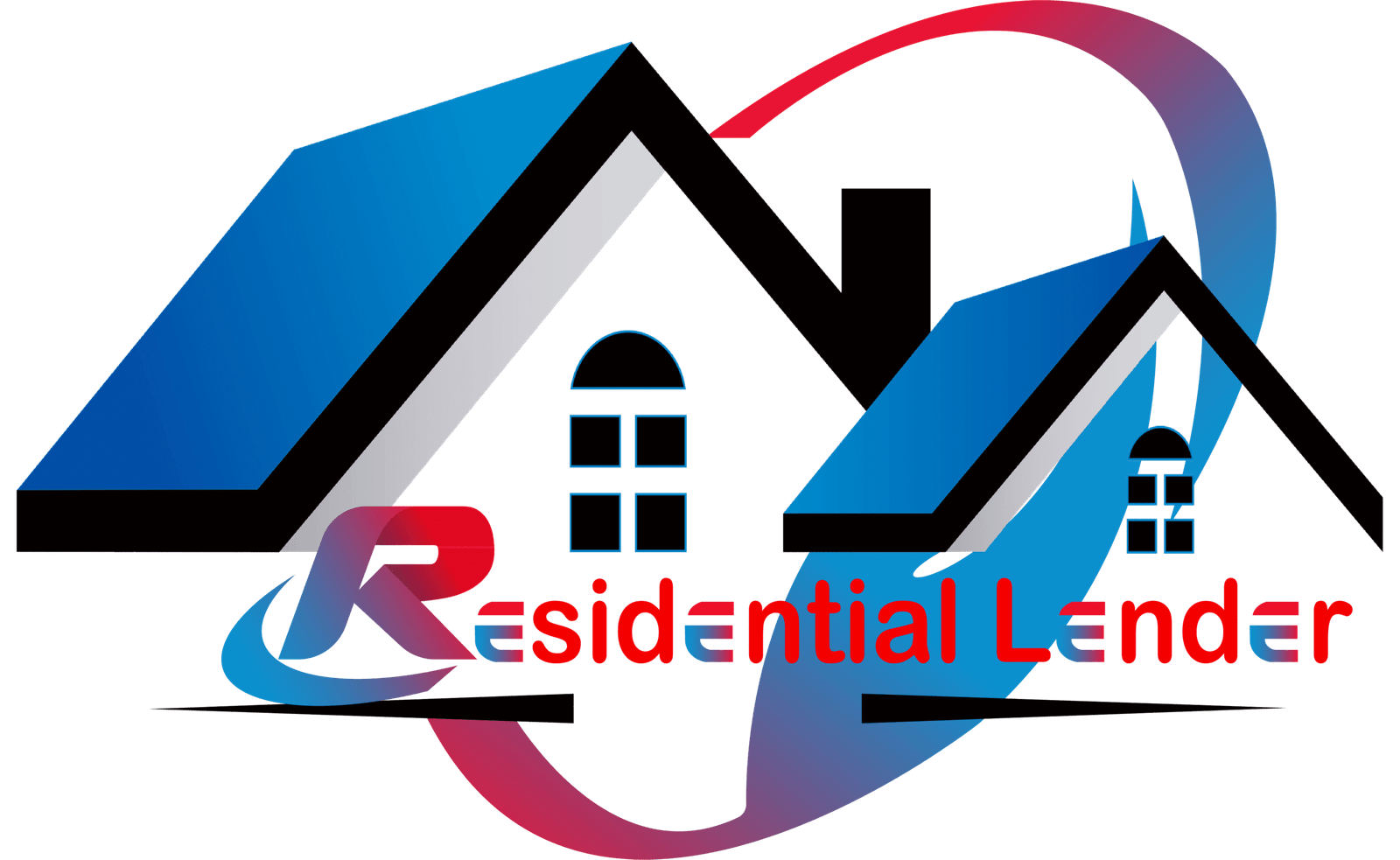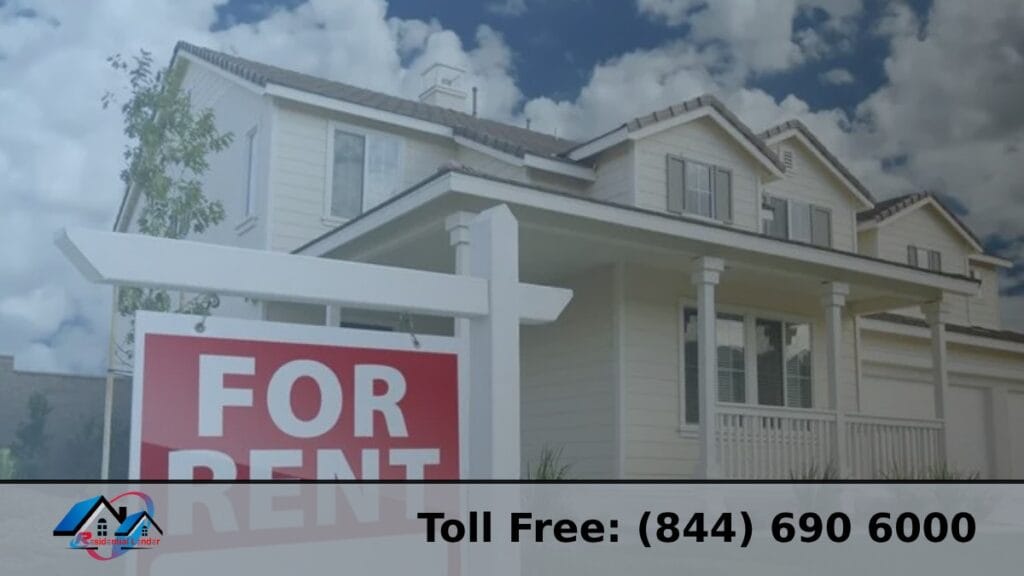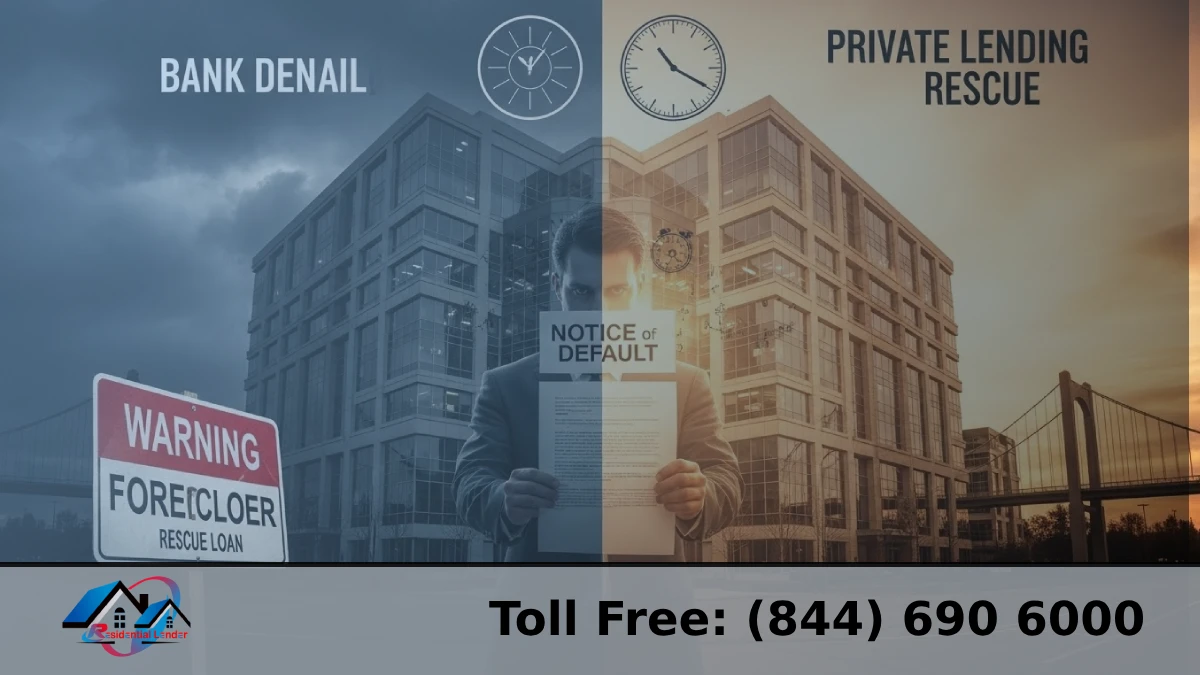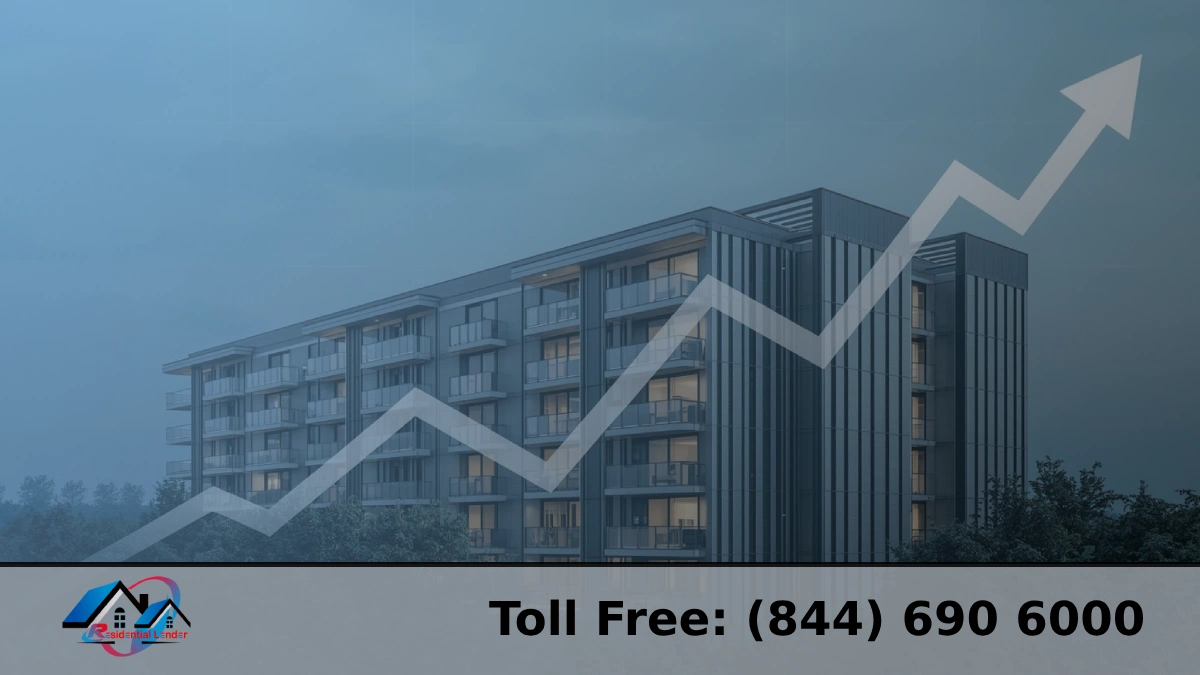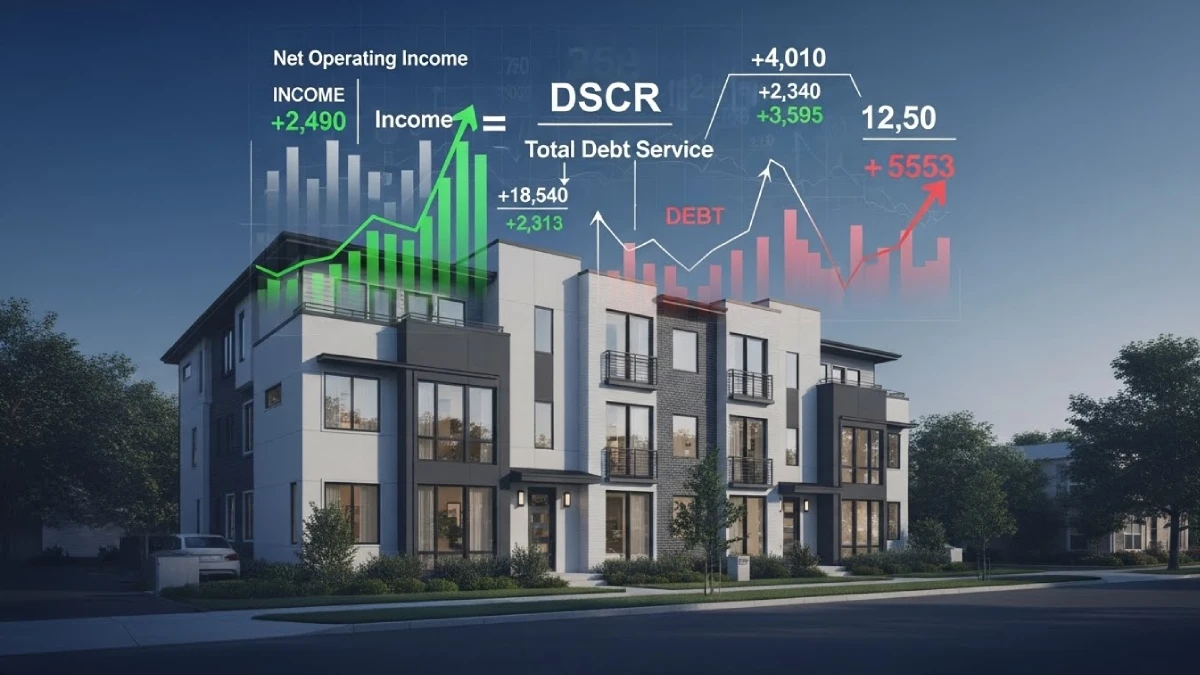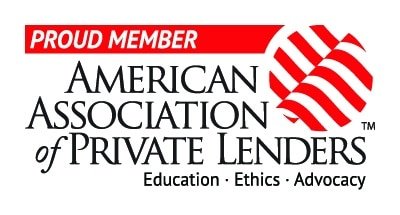We at Residential Lender know how difficult it can be to navigate the real estate business. Our team of experts is committed to giving you the information and assistance you need to make smart choices about financing your dream home.
Getting the right loan is one of the most important parts of investing in real estate that pays off. There are so many loan options that figuring out which is best for your goals and finances can take effort. It’s easy to miss opportunities or even run into money problems if you need to learn about your loan choices.
This is where a Residential Lender comes in. Knowing a lot is very helpful when buying real estate. Today, we’d like to discuss a type of loan perfect for investors: the DSCR (Debt Service Coverage Ratio) rental loan.
The benefits of DSCR loans are unique and can help you get better deals on investment properties. Interested? In what ways does it work, and what advantages does it offer? We’ll talk more about DSCR loans and answer all of your hot questions in this blog post:
- What does a DSCR loan mean?
- What’s the difference between a DSCR loan and other types of loans?
- What are the main reasons you should use a DSCR loan to invest in real estate?
Stay tuned as we explain the power of DSCR loans and provide the information you need to make smart choices about your investment path.
What is a DSCR Rental Loan?
A DSCR (Debt Service Coverage Ratio) rental loan is a type of financing to help real estate investors. DSCR loans differ from traditional mortgages because they focus on the property’s ability to make money instead of the borrower’s credit score and income.
How DSCR Works
DSCR determines if a borrower can repay a loan by examining the property’s rental income. It is calculated by dividing the property’s net operating income (NOI) by the amount of interest and capital that needs to be paid each year.
DSCR = Net Operating Income / Annual Debt Service
The DSCR would be 1.2 if, for example, a property earns $30,000 a year in rent and pays off $25,000 a year in debt. A higher DSCR means that the borrower is more likely to be able to pay back their debts, which makes them a more appealing option for lenders.
DSCR Loans vs. Traditional Mortgage
| Feature | DSCR Loan | Traditional Mortgage |
| Focus | Property Income | Borrower’s Credit Score and Income |
| Qualification | DSCR Ratio | Credit Score, Debt-to-Income Ratio |
| Ideal For | Real Estate Investors | Homebuyers |
Benefits of DSCR Loans
Lower Credit Score Needed: DSCR loans often have less strict credit score requirements than regular mortgages. This means that buyers with lower credit scores can still get them.
Limited Tax History: DSCR loans can be a good choice if you have a limited tax history or are a foreign national because they prioritize property income over personal financial history.
Portfolio Growth: DSCR loans can help you buy more homes, even if you don’t have much money or good credit so that you can grow your real estate portfolio.
DSCR loans are a flexible and helpful way for real estate owners to get the money they need because they focus on the property’s ability to make money.
How Does a DSCR Rental Loan Work?
Pre-Qualification
To get a DSCR rental loan, you first need to get pre-qualified. In this case, you must provide a provider with basic information about yourself and the property. The lender will look at your finances and the property’s prospects for income to decide if you can get a DSCR loan.
Property Appraisal
As soon as the investor knows you’re qualified, they’ll set up a professional home appraisal. The evaluator will determine the property’s market value and potential rental income. This appraisal will determine the loan-to-value (LTV) ratio and the most significant loan amount.
Income Verification
They might ask for rental income statements, lease agreements, or tax returns to verify the property’s income. They might also conduct a rental income study to determine how much the property has earned and could earn in the future.
Loan Approval
The lender will decide if the loan is approved based on the pre-qualification, the assessment of the property, and proof of income. If accepted, you’ll get a loan offer that spells out the terms and conditions, such as the interest rate, loan term, and monthly payments.
Types of DSCR Loans
DSCR loans come in several different forms, such as:
The rate that stays the same DSCR Loans: The interest rate on these loans stays the same for the whole loan time, so you can easily plan your monthly payments.
Adjustable-Rate DSCR Loans: The interest rate on these loans changes regularly based on a particular measure. They might have lower interest rates at first, but if rates go up, they might be risky.
Qualifying for a DSCR Loan
Most of the time, you need to meet the following conditions to be eligible for a DSCR loan:
Value of the Property: The investor will set a minimum value for the property that it must meet.
Rental Income: The property must bring in enough rent to pay off the debt and meet other costs.
Debt-to-Income Ratio: Lenders may look at your debt-to-income ratio, which shows how much debt you have compared to how much money you make.
Credit Score: A good credit score matters less for this type of loan than a traditional mortgage, but it can still help you get better terms.
Documents Required for a DSCR Loan Application
Most of the time, you’ll need to provide the following items to finish your DSCR loan application:
Personal Financial Information: Information about your finances, like tax returns, bank accounts, and proof of income.
Property Information: Information about the land includes a report on the property’s value, title insurance, and tax statements.
Rental Income Verification: Lease papers, rental income statements, and tenant screening reports can all be used to prove rental income.
Interest Rates and Loan Terms
The borrower’s credit score, the property’s location, and the state of the market can all affect the interest rates and terms of a DSCR loan. DSCR loans usually have higher interest rates than regular mortgages because of the higher risk of financing rental properties. Loan terms can be anywhere from 5 to 30 years.
Benefits of Using DSCR Rental Loans
DSCR rental loans are suitable for real estate owners in many ways. Many good things come from this:
Qualifying with Lower Credit Scores or Limited Tax History: Suppose you have bad credit or no tax history. In that case, you may still be able to get a DSCR loan because the property’s ability to make money is more important than the borrower’s credit history. Investors with bad credit or little tax background can still buy them.
Funding Properties with Higher Potential Rental Income: DSCR loans let you fund properties with higher potential rental income, even if they cost more to buy. This can make it possible to invest in expensive properties that you might not be able to get with regular loans.
How to Build a Real Estate Portfolio More Rapidly: With the help of DSCR loans, you can quickly buy more than one property and build a diverse real estate portfolio.
Getting Loans for Properties That the Owner doesn’t Own: DSCR loans are meant to finance investment properties, making them perfect for funding properties not owned by the owner.
Case Study: Alex’s Real Estate Journey
Alex was an experienced real estate owner who wanted to add to his holdings. He had found a good multi-family home in a growing area. However, standard mortgage lenders hesitated to give him a loan because he was a new immigrant with little tax history.
Alex turned to DSCR loans because he saw the property’s promise. Even though he had bad credit, he could get a loan by focusing on the property’s high rental income. With the DSCR loan, he could buy the multi-family house and start renting it immediately, making money.
By buying this property and making it pay off, Alex built a strong cash flow, boosted his credit score, and set himself up for future purchases. The DSCR loan sparked his real estate journey, which helped him become financially free and wealthy in the long run.
Potential Drawbacks of DSCR Loans
There are many good things about DSCR loans, but it’s also essential to know some bad things that could happen:
Higher Interest Rates: DSCR loans often have higher interest rates than regular mortgages. This is because financing an investment property is more dangerous.
Stricter Underwriting Rules: Lenders have more stringent underwriting rules for DSCR loans, which could mean that you have to provide more proof and documents.
By carefully weighing the pros and cons of DSCR loans, real estate investors can make smart financial choices and be successful in the long run.
Using DSCR Loans for Different Investment Property Types
The DSCR loan is a flexible form of borrowing used to buy different types of investment property. Let us look at some of the ways that DSCR loans can be used in other real estate strategies:
Fix & Flip
DSCR loans can give fix-and-flip investors the money they need to buy homes in bad shape. You can purchase homes below market value, fix them up, and then sell them for a profit, with the loan covering both the purchase price and the costs of fixing them up. But remember that DSCR loans are longer-term, so there may be better choices for fix-and-flip jobs that must be done quickly.
Fix & Hold
DSCR loans can be a great option if you want to buy homes and keep them for long-term rental income. Because the loan is based on the property’s future income, it’s perfect for financing homes that need a lot of repairs or improvements. You can lower the DSCR and refinance the loan on better terms by raising the property’s value and renting income.
Rental Investment Properties
Single-Family houses: Individuals can use DSCR loans to buy single-family houses that they will rent out. Lenders can determine if you can repay the loan by looking at how much money the property could bring in from rentals.
Properties with Multiple Families: DSCR loans are a good way to finance properties with multiple families, like duplexes, triplexes, and apartment buildings. These properties can help meet the DSCR standards because they bring in more rental income.
Commercial Investment Properties
Office Buildings and Storefronts: You can use DSCR loans to pay for business properties like storefronts and office buildings. On the other hand, commercial buildings may have a stricter underwriting process because lenders will carefully look at the mix of tenants, lease terms, and market conditions.
Other Property Types
Self-Storage and Assisted Living Facilities: DSCR loans can also fund unique types of properties, such as auto storage and assisted living facilities. Lenders will consider the property’s unique sources of income and running costs to determine eligibility.
DSCR Loan Considerations Based on Property Type
Rental Income Stability: Lenders may be more interested in properties with stable and predictable rental income, like those with long-term leases or renters backed by the government.
Location: The property’s location can affect its rent income and, by extension, its DSCR. Lenders may be more interested in properties in high-demand areas and with strong rental markets.
Condition of the Property: The property’s health can affect how much it’s worth and how much rent it brings in. Making changes and renovations to a property can raise its value and rent income. Still, they may also cost more upfront.
Knowing the unique requirements and things to consider for each property type, you can use DSCR loans to reach your real estate investment goals.
Conclusion
DSCR rental loans are a unique and powerful way for real estate owners to borrow money. They differ from traditional mortgages because they focus on the property’s earning ability. People with bad credit or little tax history can still get these loans.
By using DSCR loans, you can get loans for expensive properties, diversify your portfolio more quickly, and find investment options other than homes that people live in.
Are you ready to see what DSCR loans can do for your real estate journey? For a free evaluation, call Residential Lender at residentialallender.net right now. Our professionals will help you through the process and determine which DSCR loan will help you reach your business goals. Take advantage of this chance to get more properties and grow your real estate business!
FAQs
What is the minimum DSCR required for a rental loan?
The lowest DSCR can be different for each loan and type of property, but 1.25 is a reasonable level. However, some lenders might be willing to accept lower DSCR ratios for homes with good rental records and steady tenants.
Can I use a DSCR loan to buy a vacation rental property?
You can, of course. Conversely, lenders will carefully examine the property’s rental income prospects, occupancy rates, and seasonal changes. It’s important to include detailed financial forecasts showing the property can earn money consistently.
What are the potential risks of DSCR loans?
Even though DSCR loans have many benefits, it is essential to know what risks they may come with. These include higher interest rates, tighter lending rules, and the chance that the property will not be rented out and the rental income will go down. A strong rental history and a good idea of the property’s income potential are significant.
Can I refinance a DSCR loan into a traditional mortgage?
Some people may be able to turn their DSCR loan into a regular mortgage after the property’s value has increased and their credit score has improved. However, this will depend on many factors, such as the lender’s rules and the state of the market.
How can I improve my chances of getting approved for a DSCR loan?
To increase your chances of getting approved for a DSCR loan, consider the following tips:
- Maintain a good credit score
- Have a strong rental history with stable tenants
- Provide detailed financial documentation
- Choose a property in a strong rental market
- Work with a reputable lender who specializes in DSCR loans
